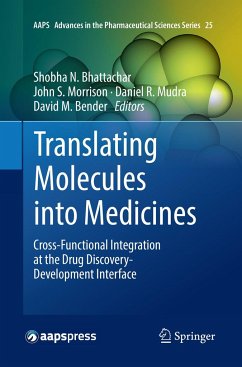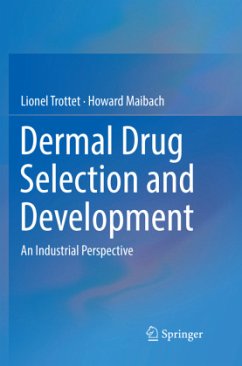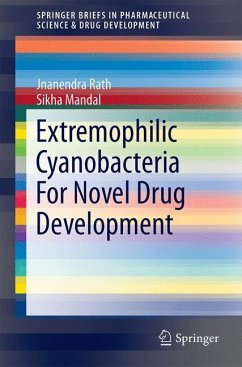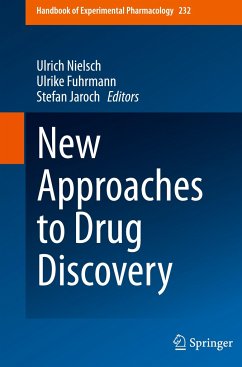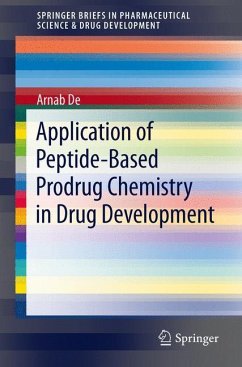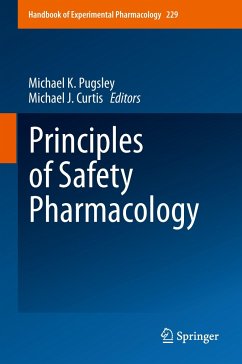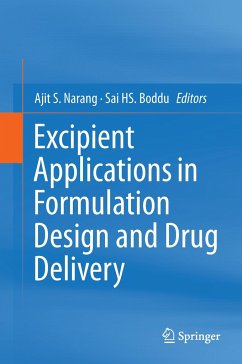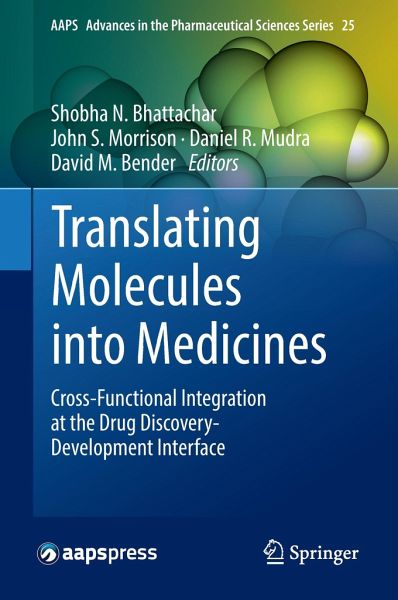
Translating Molecules into Medicines
Cross-Functional Integration at the Drug Discovery-Development Interface
Herausgegeben: Bhattachar, Shobha N.; Morrison, John S.; Mudra, Daniel R.; Bender, David M.

PAYBACK Punkte
95 °P sammeln!
Tackling translational medicine with a focus on the drug discovery development-interface, this book integrates approaches and tactics from multiple disciplines, rather than just the pharmaceutical aspect of the field. The authors of each chapter address the paradox between the molecular understanding of diseases, drug discovery, and drug development. Laying out the detailed trends from various fields, different chapters are dedicated to target engagement, toxicological safety assessments, and the compelling relationship of optimizing early clinical studies with design strategies. The book also...
Tackling translational medicine with a focus on the drug discovery development-interface, this book integrates approaches and tactics from multiple disciplines, rather than just the pharmaceutical aspect of the field. The authors of each chapter address the paradox between the molecular understanding of diseases, drug discovery, and drug development. Laying out the detailed trends from various fields, different chapters are dedicated to target engagement, toxicological safety assessments, and the compelling relationship of optimizing early clinical studies with design strategies. The book also highlights the importance of balancing the three pillars: sufficient efficacy, acceptable safety and appropriate pharmacokinetics, all of which are crucial to successful efforts in discovery and development. With discussions regarding the combined approaches of molecular research, personalized medicine, pre-clinical and clinical development, as well as targeted therapies-this compendium is a flexible fit, perfect for professionals in the pharmaceutical industry and related academic fields.





